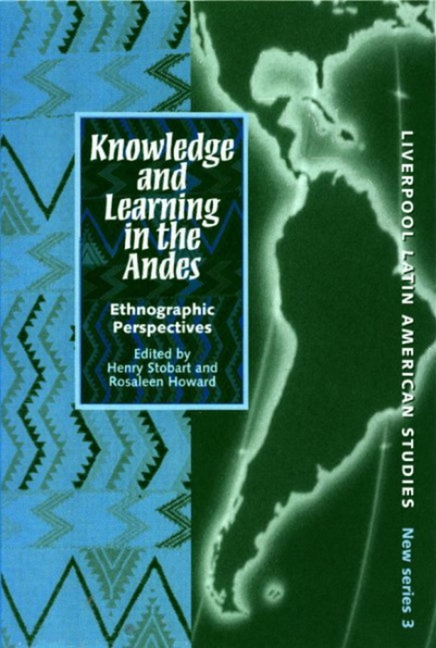Book contents
- Frontmatter
- Contents
- List of illustrations
- List of contributors
- Introduction
- Part I: Multiple Media in the Creation and Transmission of Knowledge
- Part II: Knowledge, Power and Authority
- 5 Coming to Power: Knowledge, Learning and Historic Pathways to Authority in a Bolivian Community
- 6 Juggling Knowledge, Juggling Power: The Role of the Professional Indigenous Activist in San Pablo, Ecuador
- Part III: Conflicting Paradigms of Knowledge
- Index
5 - Coming to Power: Knowledge, Learning and Historic Pathways to Authority in a Bolivian Community
from Part II: Knowledge, Power and Authority
- Frontmatter
- Contents
- List of illustrations
- List of contributors
- Introduction
- Part I: Multiple Media in the Creation and Transmission of Knowledge
- Part II: Knowledge, Power and Authority
- 5 Coming to Power: Knowledge, Learning and Historic Pathways to Authority in a Bolivian Community
- 6 Juggling Knowledge, Juggling Power: The Role of the Professional Indigenous Activist in San Pablo, Ecuador
- Part III: Conflicting Paradigms of Knowledge
- Index
Summary
The main issue studied in this chapter is the relationship between ‘traditional’ socio-political powers in a Bolivian community and the ways in which knowledge about and access to these powers were granted. I will first look at the sources of political power and then concentrate on the preparations for the first in a series of ‘rites of passage’ that show how knowledge about politics was produced and disseminated in such a way as to reveal hierarchical structures and processes that integrated the socio-political and religious spheres of life. In fact, this ‘rite of passage’ and the process that led up to it are best understood as being part of a learning process that provided young people with comprehensive knowledge not just of politics and religious matters but of the basic principles and practices of the society into which they were being initiated. Although the main rite referred to below is no longer performed, the rationale that underpinned it has not been totally lost. On the contrary, current practices are viewed and often debated in relation to ‘how things used to be’, especially by the older people
I shall also discuss some of the characteristics of knowledge and learning in the community. These are comparable to those of other societies that, similarly, rather than using alphabetic writing, rely on oral traditions and symbolic landscapes and objects for recording and preserving their knowledge (cf. Astvaldsson forthcoming). It is not being suggested that change is only happening now and that change and ‘tradition’ belong to separate worlds. On the contrary, as I have argued at length before, tradition is best understood as process and ‘true historical continuity is always marked by ongoing transformations’ (Astvaldsson 1998a: 204). Yet, while change tends to be legitimised and sacralised through ritual, which allows transformed reality to appear as continuous, radical change often leaves visible ruptures in old practices, which normally means that the knowledge related to them must be reformulated if it is to survive.
- Type
- Chapter
- Information
- Knowledge and Learning in the AndesEthnographic Perspectives, pp. 109 - 126Publisher: Liverpool University PressPrint publication year: 2002



